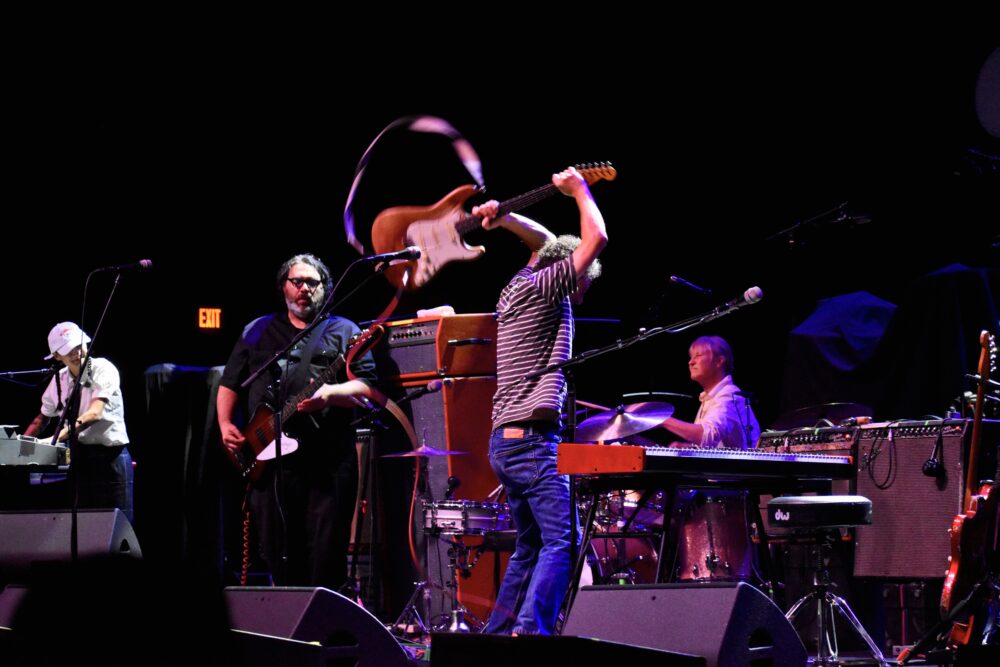Rock music is often associated with images of headbanging and screaming people. It’s a high energy genre often associated with negative emotions — anger, sadness, loneliness, etc. But, a lot of people, including this author, actually find joy listening to rock music. People even find the genre of music invigorating; they feel more motivated to tackle challenges when listening to rock songs. So what is it about this genre that makes people so pumped up? Why do people feel so energized when hearing rock music?
It is important to note that rock music has a negative reputation; there have been studies that show how listening to heavy metal music can compound existing feelings of depression, loneliness. There have even been studies where researchers found a correlation between youth suicide rates and listening to heavy metal rock music. On the other hand, there are studies out there that have found rock music having a positive effect on listeners.
One major reason people enjoy rock music is that they’re able to relate to the subject matter being discussed. They find comfort in knowing that someone else understands what they’re going through. Miroslav Komlenić from the University of Niš in Serbia describes the audience’s attachment to rock music as a form of “self-therapy.” Paula Rowe and Bernard Guerin from the University of South Australia discuss how heavy metal listeners feel like they’re a member of a community. There’s a sense of bonding for a group of people who tend to feel isolated in their everyday lives. Then of course, there’s the fact that listening to heavy metal allows listeners to let go of their frustrations.
“There’s a sense of bonding for a group of people who tend to feel isolated in their everyday lives.”
There’s also a physical impact of rock music on listeners. Researchers at Gunadarma University in Indonesia discussed the impact of rock music on the body, noting how rock has “loud characteristics” since it involves rapid beats and loud vocals. They also describe how rock leads to changes in blood pressure and heart rate as the body becomes invigorated. Researchers in Iran also mention how listening to rock music can actually help athletes feel more energized for sports events since rock music “increases cerebellum activity.”
Researchers in India decided to learn more about why people liked rock music and the effect rock music can have on people’s moods. Through interviews, they saw that respondents liked rock music as it “induced emotions… even when they feel absolutely nothing.” Respondents said rock music made them feel better and helped them deal with challenging times in their lives. They all agreed that rock music helped motivate them to do their tasks. Finally, respondents talked about how a big appeal of rock music was the instrumentals. An instrumental worth noting is the use of guitar. Bruce Baugh wrote about how the guitar can produce emotions from listeners, citing examples like Jimi Hendrix and Eric Clapton who play the guitar in a way that “connects directly with the body.”
As we can see, rock music carries a lot of power to it. It can bring excitement in boring moments, provide comfort in moments of sadness and overall bring people together. However, there still needs to be more research done into what impact rock music has on listeners — not just from a mental health perspective but also on a neurological perspective. It’s important to understand the effects of such a powerful genre on its many listeners.
- International Research Journal of Advanced Engineering and Science (2022). ISSN: 2455-9024
- Media Studies and Applied Ethics (2021). DOI: 10.46630/msae.1.2021.02
- Journal of New Studies in Sport Management (2021). DOI: 10.22103/jnssm.2021.18566.1045
- Cardiometry (2021). DOI: 10.18137/cardiometry.2021.20.110118
- Journal of Community Psychology (2018). DOI: 10.1002/jcop.21949
- Adolescence (1999). ISSN: 00018449
- The Journal of Aesthetics and Art Criticism (1993). DOI: 10.2307/431967


